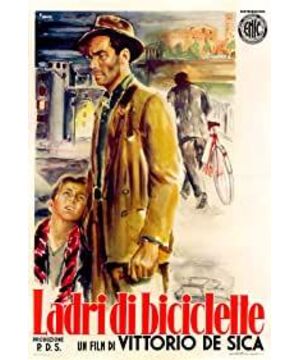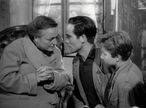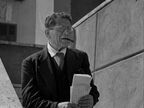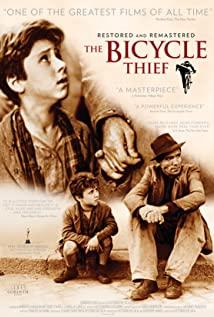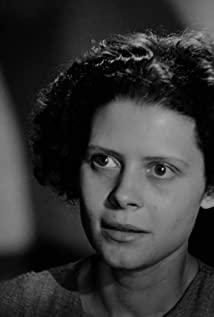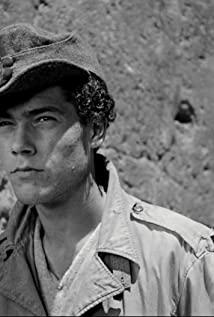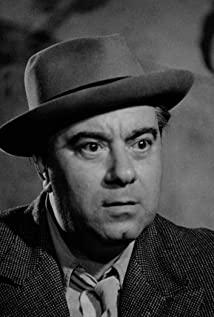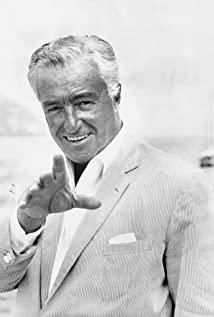Reality is like a sharp knife covered with honey. If you've read Flaubert, Maupassant, and Balzac, and you still don't know what to do, then you can look for this "Bicycle Stealer" and watch it, maybe a sharp knife will pierce your tears.
After the end of World War II in 1945, Mussolini fell, followed by the extreme aestheticism and formalism films under the rule of the F Sith in Italy, due to the collapse of the long-term ruling class and innovative ideas and theories in a short period of time. The contention of a hundred schools of thought shows that people’s spiritual realm is highly empty after the war, and they urgently need a unified ideological theory to guide their spiritual life. At this time, a group of neorealist directors represented by Rossellini, Desica, and Cavatini quickly occupied the The historical stage of Italy after World War II.
From Rossellini's "The Undefended City of Rome" to Desica's "Bicycle Thief" to Sandys "Rome 11:00" to Visconti's "The Earth is Fluctuating", the new generation of directors, through pointing Realistic footage pieced together one of the most realistic and vivid strokes in the history of Italian cinema in the 1950s. Of course, the post-war directors didn’t spend a lot of money under the background of the current commercial films. You must know that in the Neorealism movement, most of the actors in the films were from the masses and had no acting skills. They could be street vendors or coffee. The waiter in the hall can even be a beggar living on the street. It is also such a group of people at the bottom of the society who do not have professional training and special makeup, and even say that the script can only be understood with the help of the director and screenwriter. What do you think they can bring to the audience? impact? Is it the shocking performance of true feelings or the vigorous social forces under the rigorous lens that can make people listen to thunder in a silent place?
In "The Bicycle Thief", father Ramperto Mazziolani and son Enzo Steola are street extras, with Desica, a professional film actor, and Chaifa, a great screenwriter Tiny tells a poignant story of how a father who had been out of work for two years struggled to get a job posting posters, only to worry about the need for a bicycle, raising his son and making ends meet. After spending all his money on a new bike, he didn't expect it to be stolen on his first day at work. Father and son searched the streets and alleys of Rome, but could not find the bicycle that he depended on to survive. Seeing that the only way to survive was destroyed, a life of despair was about to befall the father and son, who were defenseless and had nowhere to stretch. His father could only choose tit for tat, but sadly, his father was not as lucky as the thief. The story came to an abrupt end here, as far as the sight-seeing vehicles drove away the crowd that surrounded the father, but fortunately, the father was not sent to the police station C, but held his son's hand and walked in. In the hustle and bustle of people. In the movie, the father's new bike is exchanged for everything that can be pawned in the house, including his wife's dowry. In Western culture, the meaning of the dowry of married women is more or less than that of Chinese women, which can be seen in Chekhov's novel "The Dowry". However, it is such a precious thing, in the face of life, it can only be exchanged for another tool that can make the family live. The irony is that such a tool that has all been exchanged for it has become empty in the blink of an eye. This is like the European and American countries that have experienced two industrial deaths. The cities created by their rapid development and the state machinery they maintained with lies, scheming, blood and conspiracy were quickly destroyed in the artillery fire of World War II. Facing the rubble after the war, the entire western country has been condensed into the father and son in "The Bicycle Stealer". They have no way out, but the front is empty and dark.
At the 25th minute of the movie, the despair and helplessness shown by the father after losing the car can't help but feel sad. Under the pressure of his son, who doesn't know the car was stolen but is still immersed in the beautiful vision of the new car, the father begins to collapse. "Where's the car?" "Is the car broken?". On the way to find the car after putting his son home, the father heard ZF personnel shouting to the crowd, "We can't create miracles, we promise to help you find a job as much as possible." The father who lost all of his life at this time I no longer have the confidence to believe this lie, so I turned to the street, looking for the life I just lost.
Desica is not preaching, he just carried the camera to the street, aimed the camera at the poor people who were powerless to cry, and pointed the blade at the injustice of society, but unfortunately, Desica did not find a solution. This contradictory approach, the tragic tone of the film from beginning to end is also really sighing. The true performance of father and son in the film makes the film look real and full of true feelings, dilapidated squares, slums, crowds, hopeless eyes and shouting lies fill the city, but father and son are in the restaurant. The smiling face when eating seems to have cleared away the thick smoke and radiated a dazzling light, but Desica's sharp knife does not give you such a good hope. The field of hope fell back into the cold reality. Desica uses this almost heartless plot development to puncture the bubbles of Western populace floating in the rubble after World War II.
Bread, jobs, equality and welfare, what they expect, is exactly what Desica annihilates in the film. The father and son went from going against the crowd to following the crowd into the sea of people. After all, their struggles did not cause a wave in the torrent, and everything flowed into the unknowable darkness.
Written at the end: I only watched this film after watching Jia Zhangke's "Xiao Wu" and Wang Xiaoshuai's "Seventeen-Year-Old Bicycle", which made the idea of revisiting realist movies plagued by preconceived and habitual thinking. Before "The Bicycle Stealer", I thought that realism was nothing more than using the lens to write things and be realistic, but I didn't know the social power under the real lens that realism advertised. This is something that can't be seen in Xiao Wu, who is holding K in his hands, and Xiao Gui, whose head is bleeding.
2012.4.6
View more about Bicycle Thieves reviews


